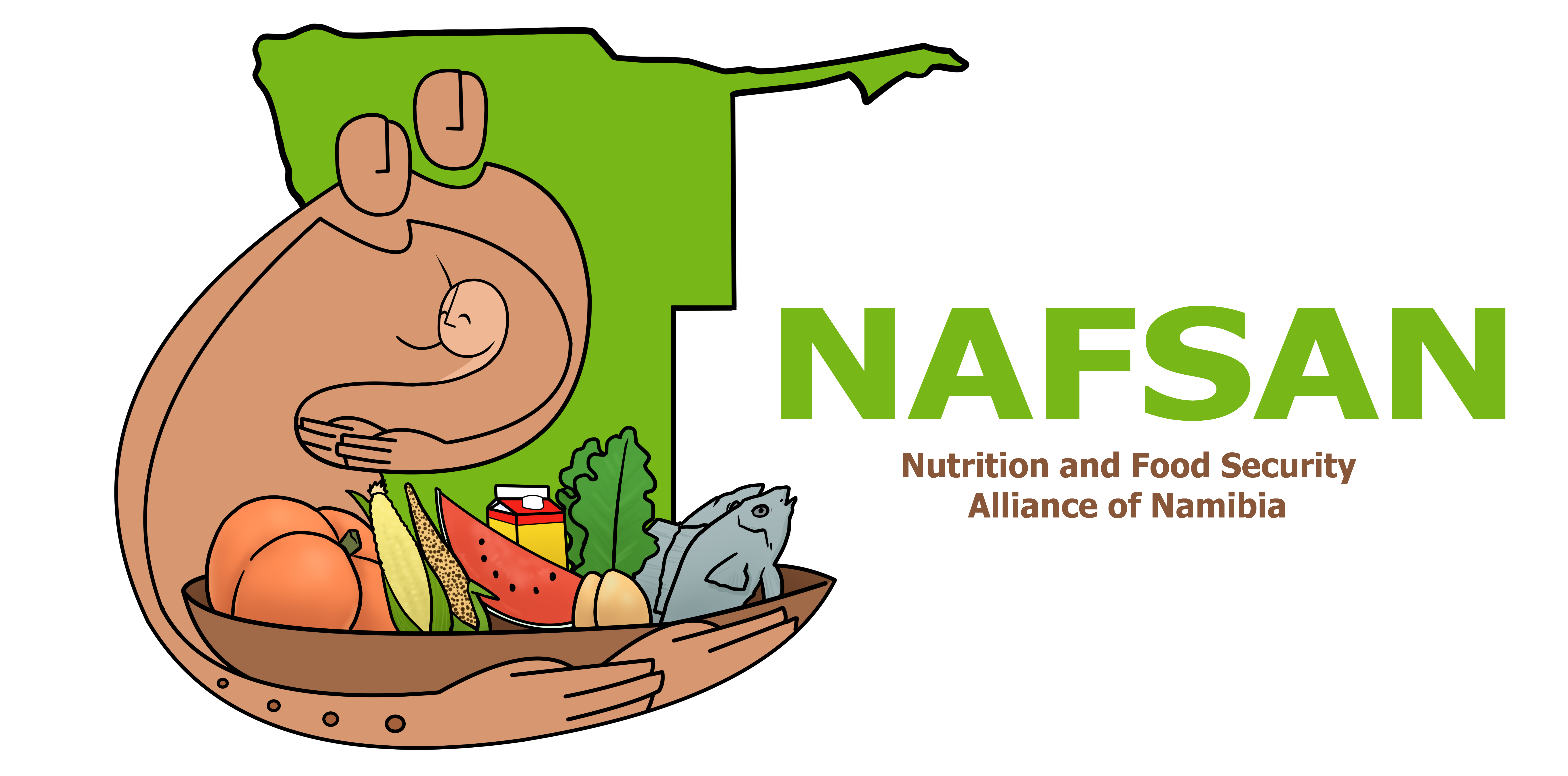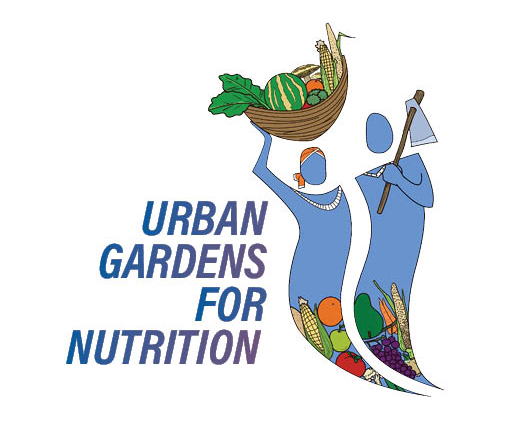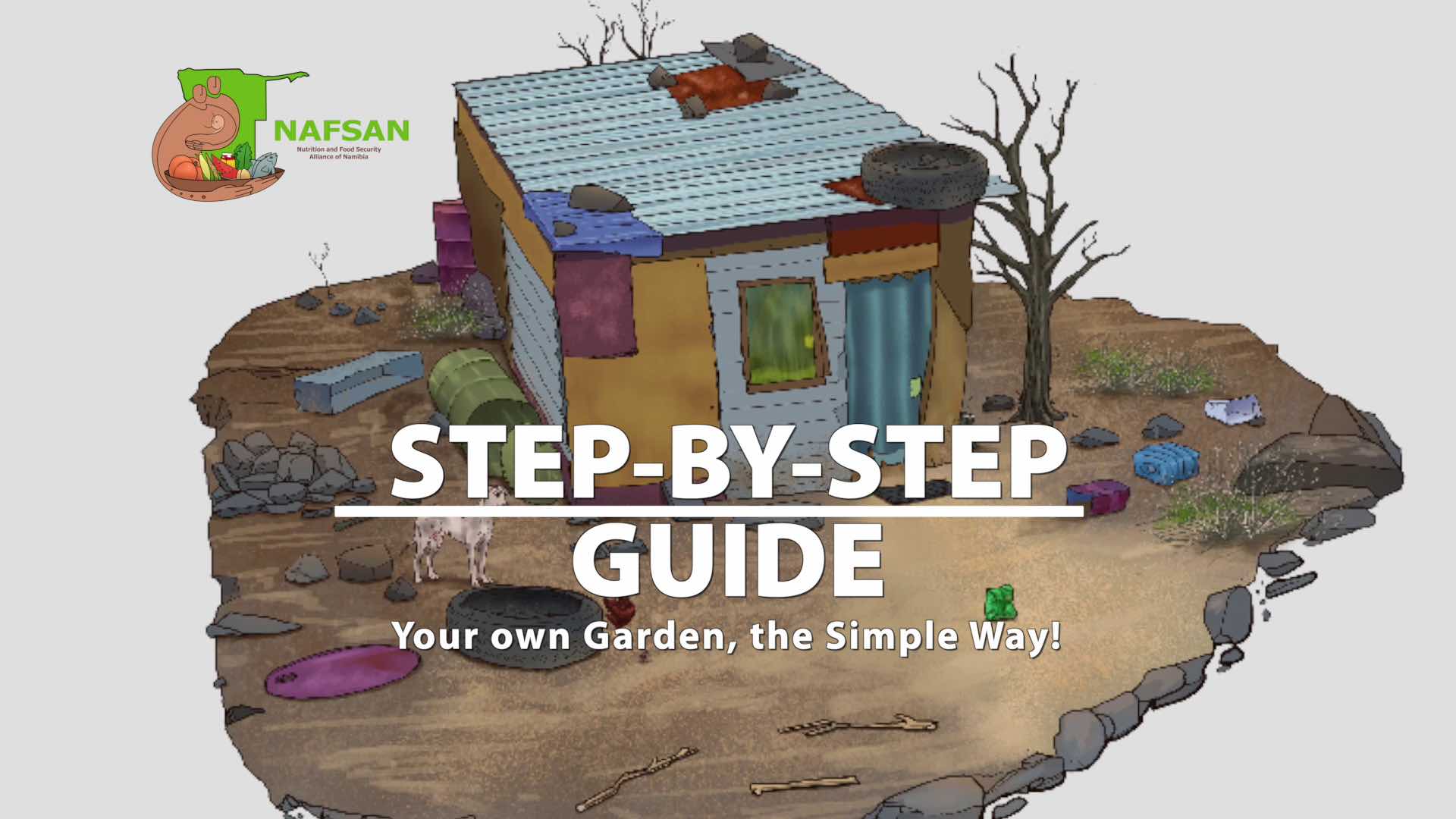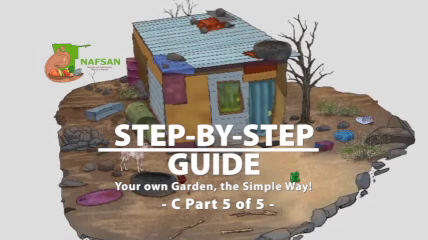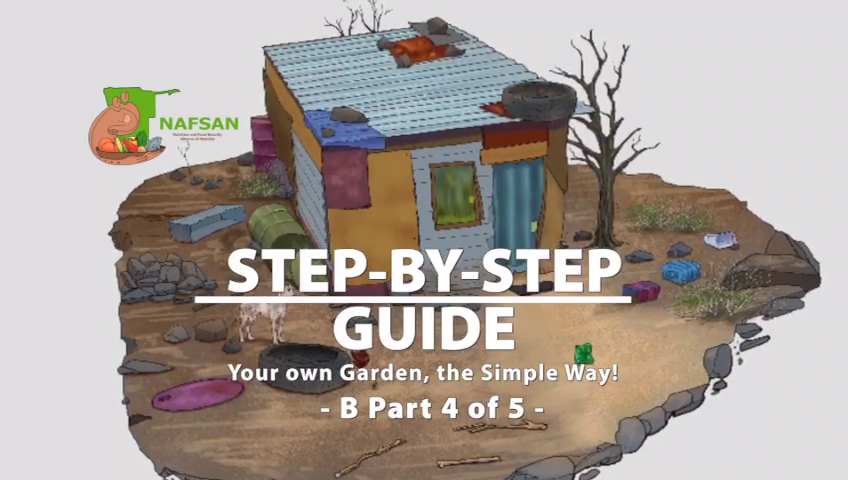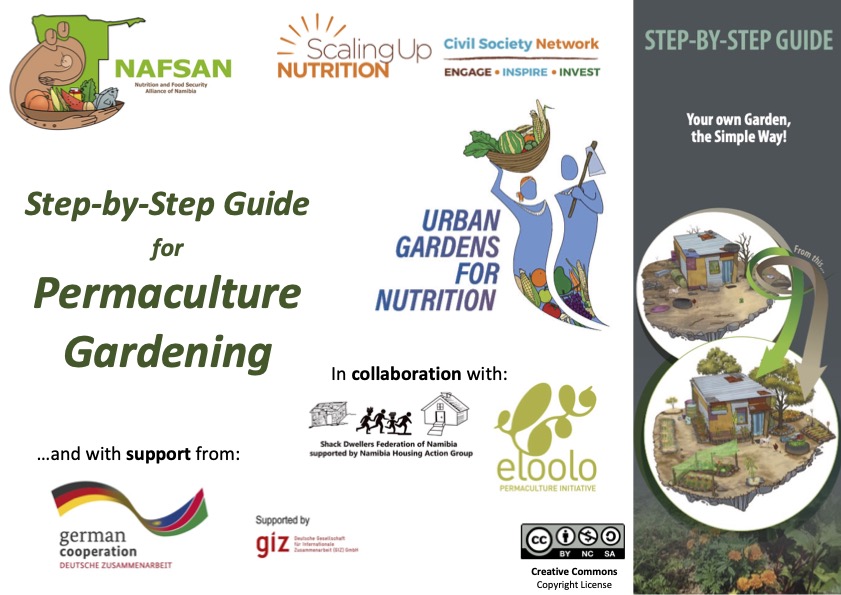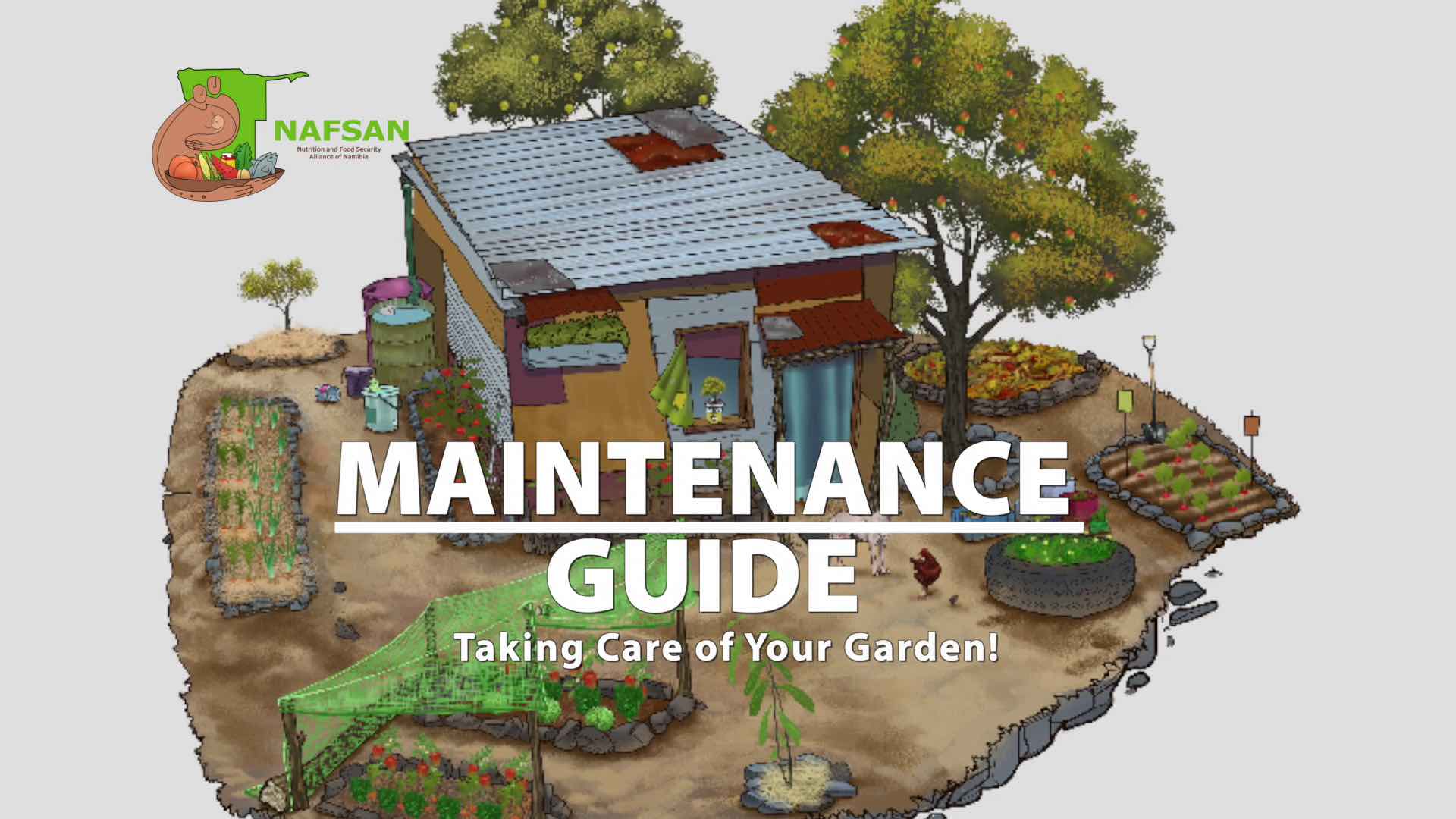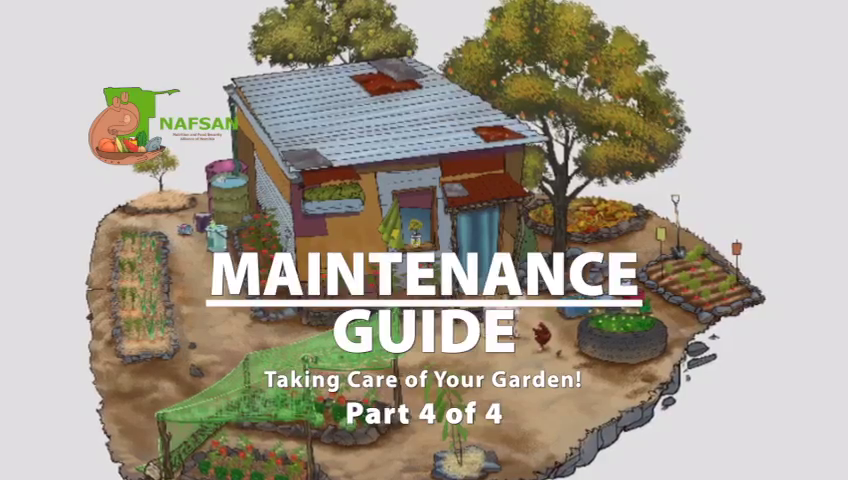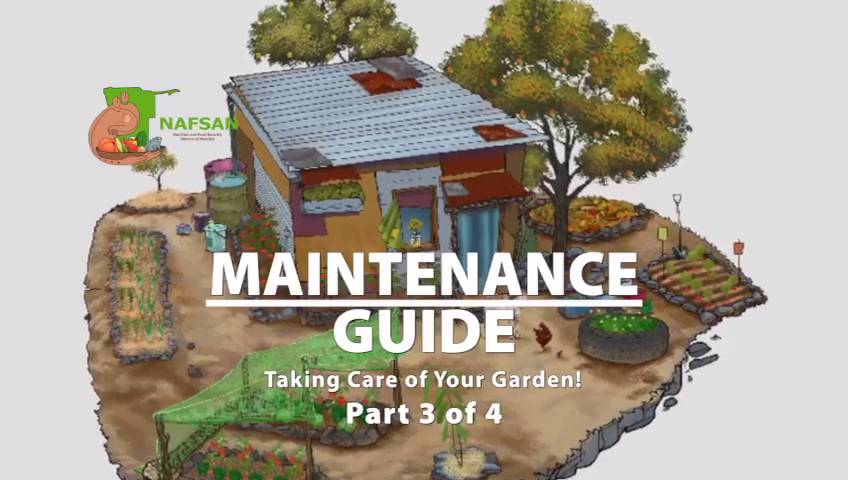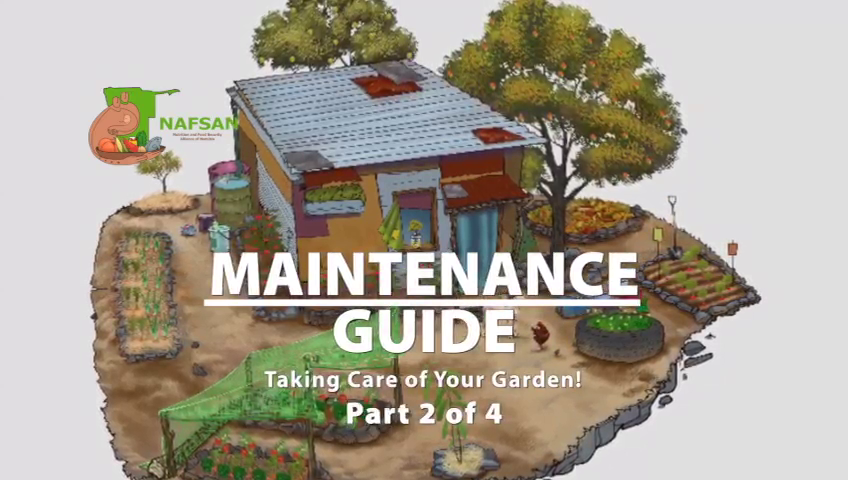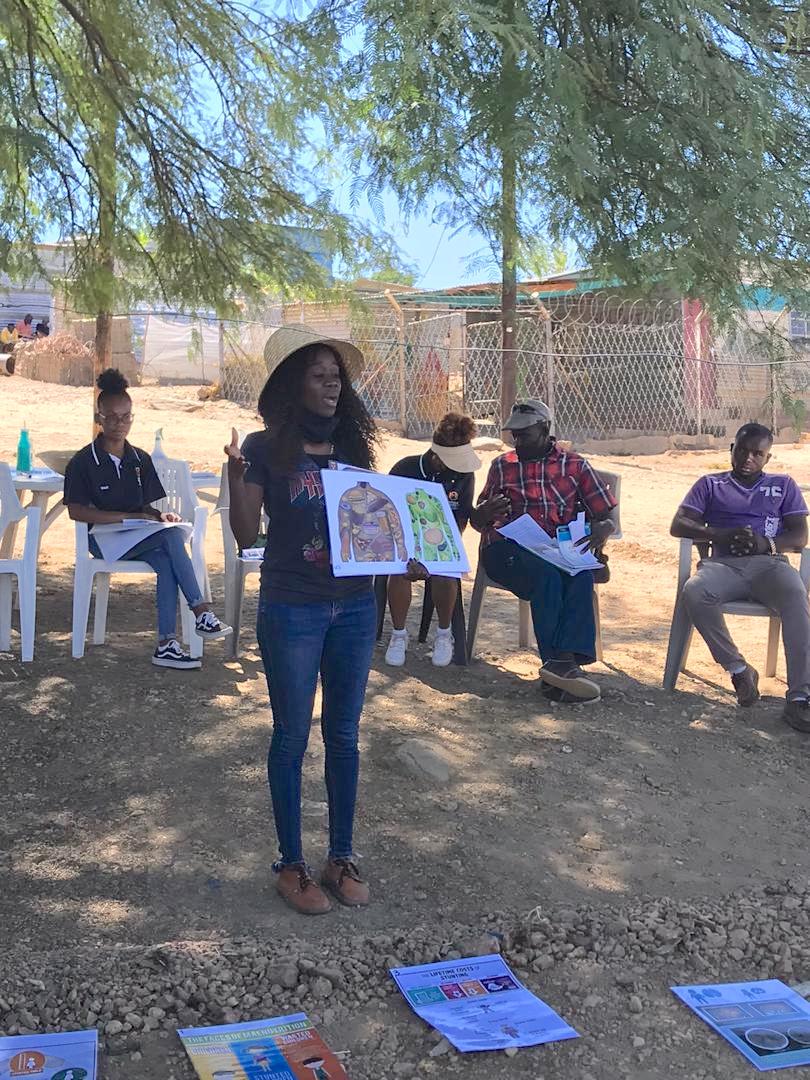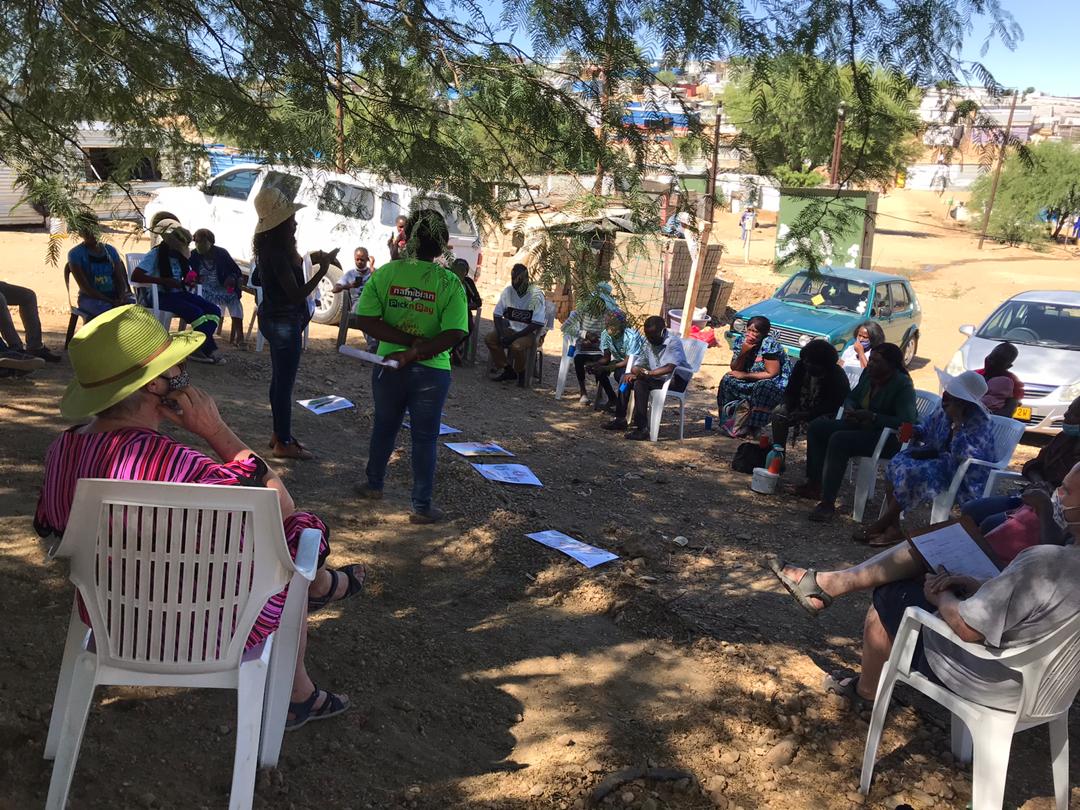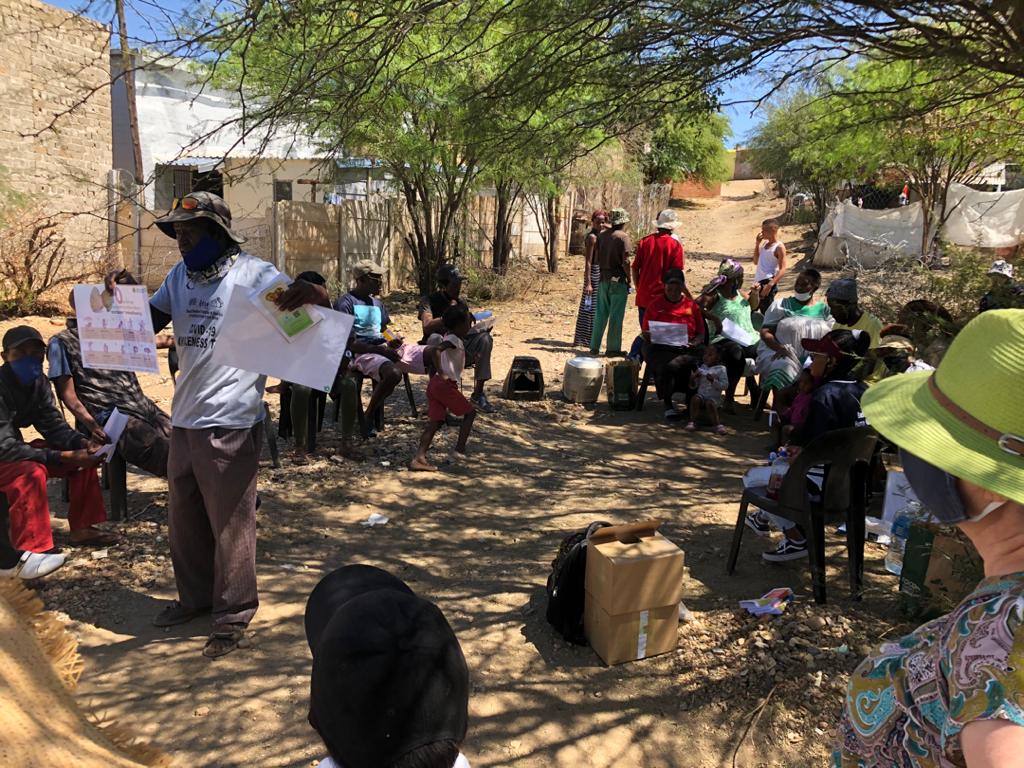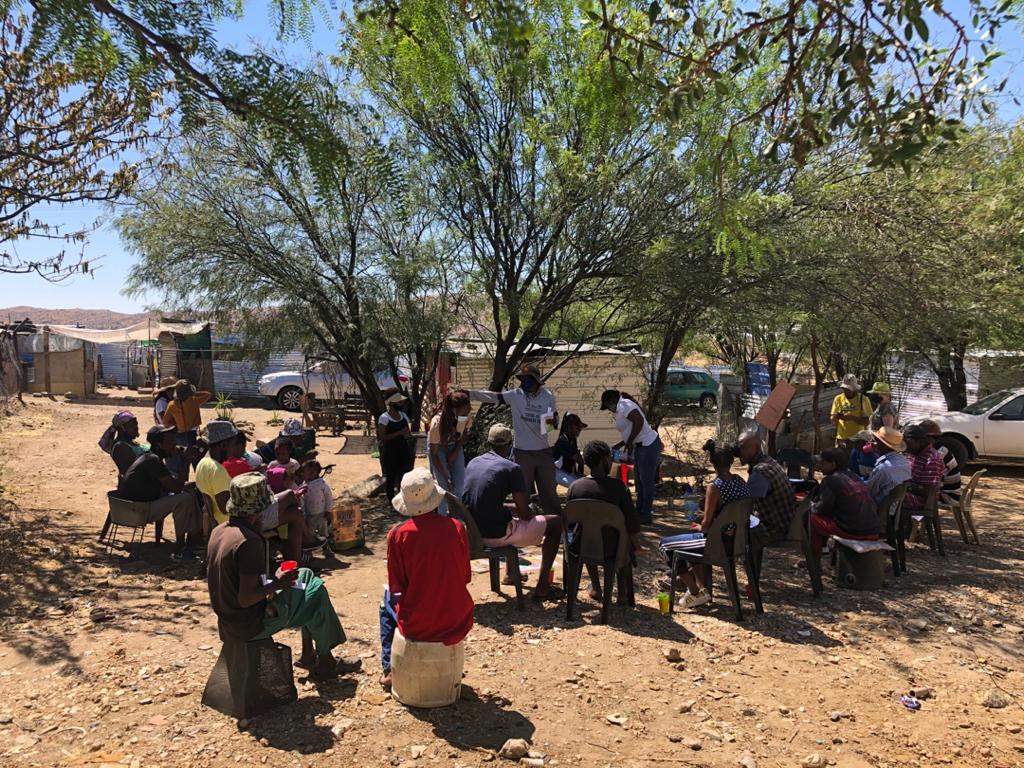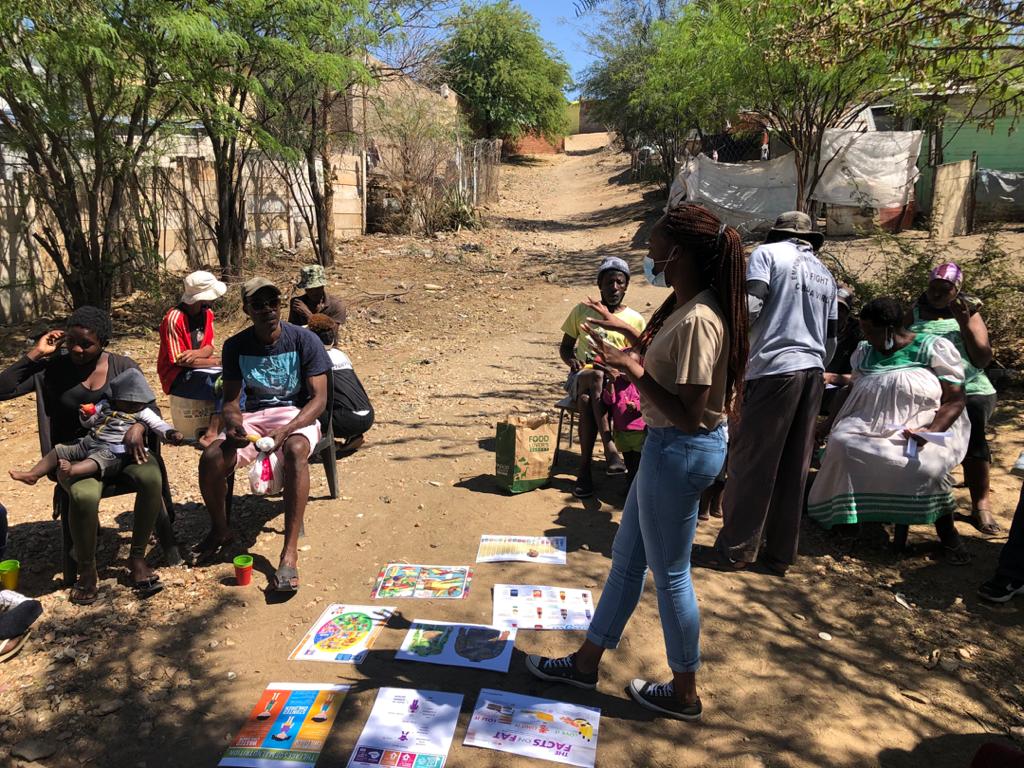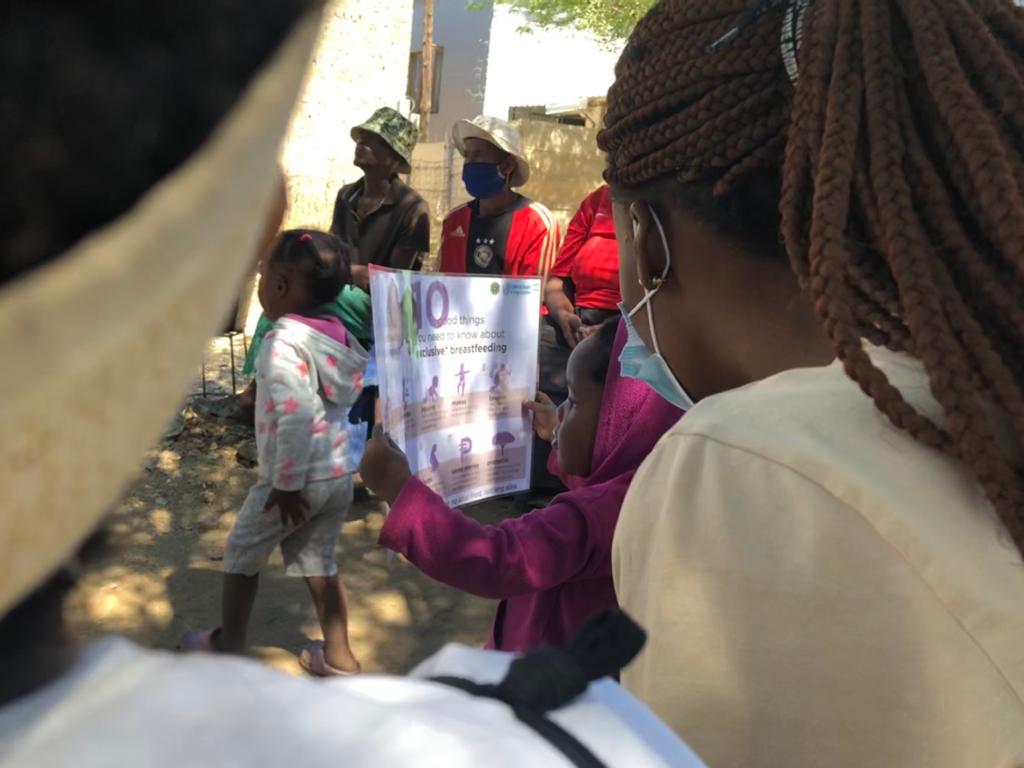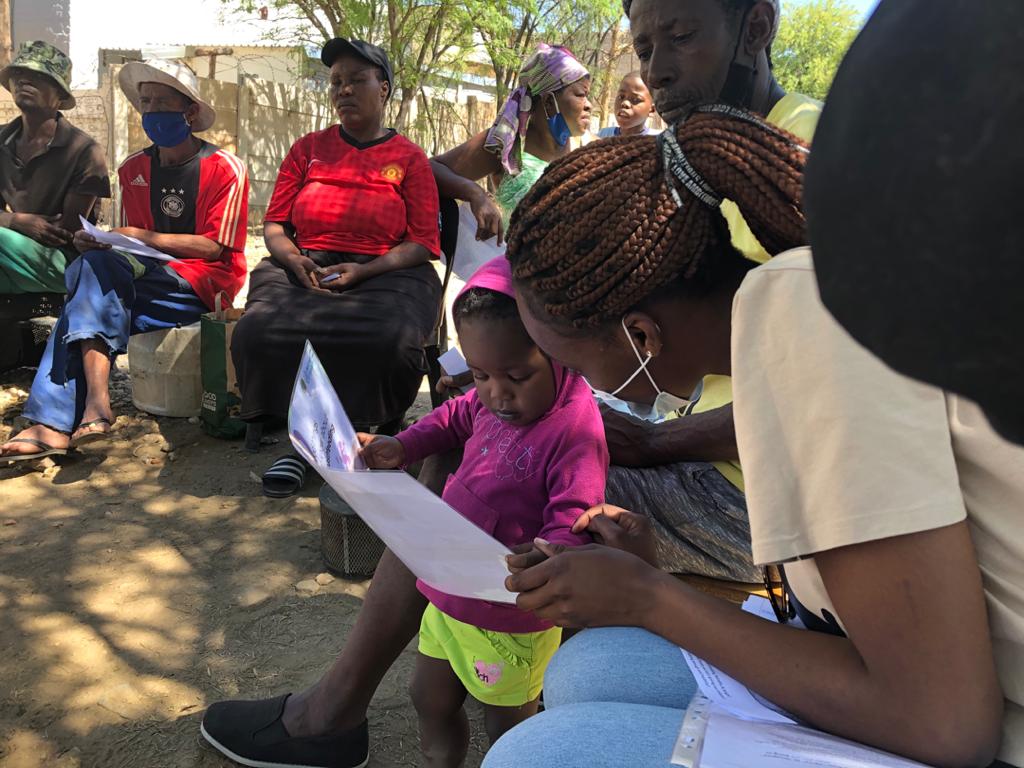
Urban Gardening & Nutrition – Short Documentary, just released!
Click here to watch.
During the Covid-19 pandemic (Sept’20-June’21), NAFSAN implemented an Urban Gardening and Nutrition project in Windhoek’s informal settlements, with support from the global SUN Movement.
Our innovative approach combined urban permaculture gardening with interactive nutrition awareness – see Interim Progress Report (Jan’21).
Key Partners were the Shack Dwellers Federation of Namibia, supported by the Namibia Housing Action Group, who will now scale-up activities in other regions and communities across the country, as well as the Eloolo Permaculture Initiative, Leitago Digital, the University of Namibia, and the Namibia University of Science and Technology.
Step-by-Step Permaculture Gardening & Maintenance
With additional support from GIZ Namibia we were able to ‘harvest’ our experiences from this project and develop a practical Step-by-Step Gardening & Maintenance Guide based on permaculture principles, as well as these two video clips on how to establish your home garden (step-by-step) and how to maintain your garden.
Print-ready versions of this Gardening Guide can be downloaded here – and you can also contact us for hardcopies.
+ check out our Composting Tips!
+ You can order organic seeds from South Africa at Living Seeds.
Interactive Community Nutrition Awareness Sessions

